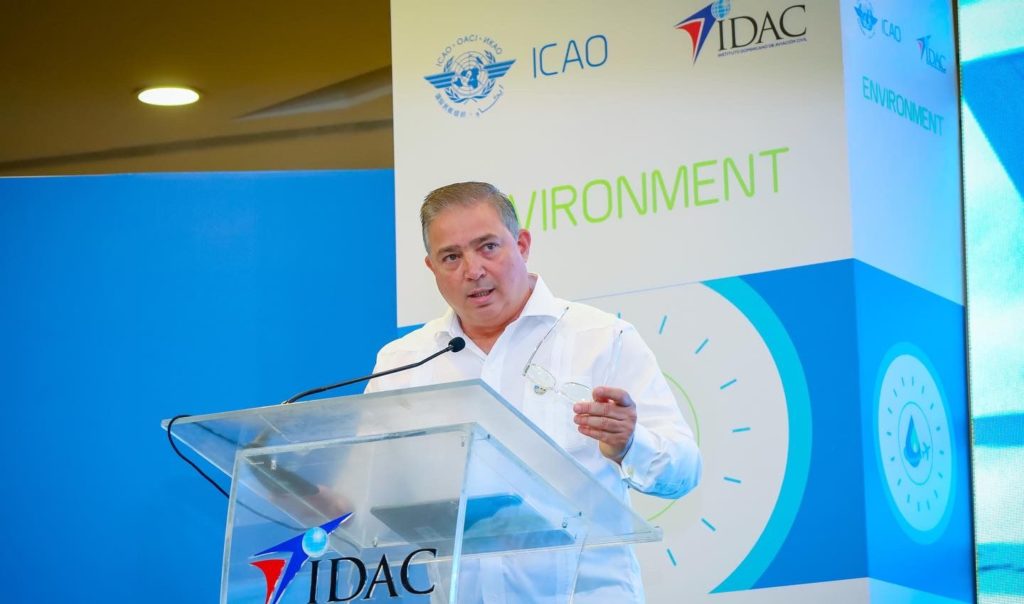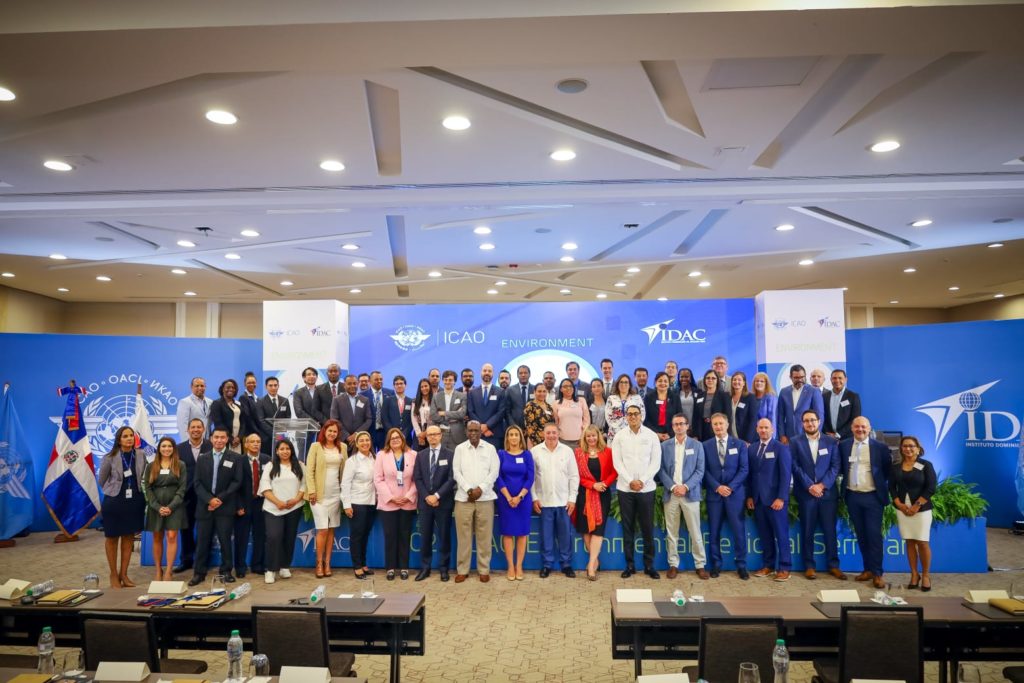Porcella values key ICAO regional event towards zero aviation carbon emissions goal

SANTO DOMINGO, D.R. April 26, 2023 – The general director of the Dominican Civil Aviation Institute (IDAC) Héctor Porcella, defined the regional meeting organized by the International Civil Aviation Organization (ICAO) in the city of Santo Domingo as a key step in the global strategy to reduce carbon emissions to zero and adopt new sources of clean energy for aeronautical activity.

He explained that the seminar coordinated by Mrs. Jane Hupe, ICAO Director of Environment, brings together the main officials and technicians who develop strategies, policies and practices of environmental protection in international civil aviation in the region of North America, Central America, the Caribbean and South America.
Porcella welcomed the ICAO delegates and reaffirmed the commitment of the Dominican Republic, led by President Luis Abinader, to the goals set by international aviation leadership to advance environmental protection, control carbon emissions and adopt urgent measures to reverse the global impact of climate change.
The objective of the seminar, explained Porcella, is to prepare for the third edition of the Conference on Aviation and Alternative Fuels (CAAF), which will address the main issues on the implementation of the aspirational goals for zero carbon emissions reduction in aviation, including recent developments on the ICAO Assistance, Capacity Building and Training in Sustainable Aviation Fuels (ACT-SAF) program.
It will also address cleaner energy financing, implementation challenges and policies, State Action Plans and other means to monitor the progress of the program approved by ICAO at its Montreal meeting in June 2022.
In addition to delegates from North, Central America, the Caribbean and South America, the seminar includes observer representation from industry, such as the International Air Transport Association IATA, Aircraft Manufacturers such as Boeing and Airbus, Caribbean Aviation Safety and Security Surveillance System.
ICAO and environmental protection
ICAO is a United Nations agency responsible for promoting unique regulations and standards in global aeronautics. Among its strategic objectives is the environmental protection of international civil aviation. Its main efforts have focused on climate change and aviation emissions, aircraft noise and local air quality.
In July 2022, ICAO held a high-level meeting that concluded with the publication of document 10178 that addresses long-term aspirational environmental goals for international civil aviation (LTAG), prioritizing ICAO’s environmental protection resources in: Fuselage, propulsion and other aeronautical and technological innovations; Optimization of flight procedures to reduce fuel consumption; Increased production and deployment of sustainable aviation fuels and clean energy; Implementation of the Carbon Offset Reduction Scheme for International Aviation (CORSIA).
As a global goal, ICAO has set a long-term aspiration to maintain global net carbon emissions from international aviation at the same level by 2020, taking into account: the special circumstances and respective capabilities of States, in particular developing countries; the maturity of aviation markets; the sustainable growth of the international aviation industry; and that emissions may increase due to the expected growth in international air traffic until lower-emission technologies, fuels and other mitigation measures are adopted.
In the medium term, it is hoped that ICAO and its member states can work together to achieve a long-term collective commitment.
Another global goal for international aviation (LTAG) is to achieve net zero carbon emissions by 2050, in support of the Paris Agreement temperature goal, recognizing the special circumstances of each State and respective capabilities.



